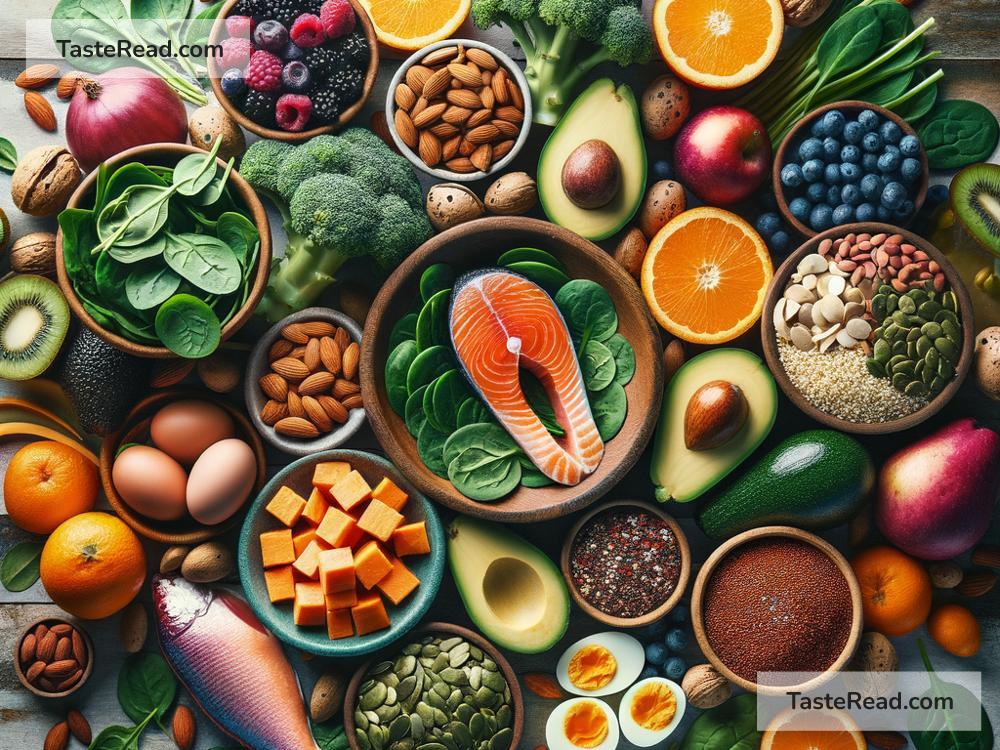Foods for Enhancing Hormonal Balance: Eat Your Way to Better Health
Hormones are special chemicals made by your body’s glands. They help control a lot of processes, like your mood, energy levels, sleep, appetite, and even how your body handles stress. When your hormones are balanced, you feel good and your body works well. But when they’re out of balance, it can lead to problems like fatigue, weight gain, anxiety, or mood swings. The good news is that the food you eat can play a big role in supporting hormonal health. Let’s explore some amazing foods that can help keep your hormones balanced and your body happy!
1. Healthy Fats for Strong Hormones
Fats aren’t bad for you—your body needs good fats to help produce hormones. Healthy fats come from foods like:
– Avocados: Packed with monounsaturated fats, avocados support hormone production and reduce inflammation.
– Nuts and seeds (like almonds, flaxseeds, and sunflower seeds): These contain omega-3 fatty acids, which help regulate mood and reduce stress hormones.
– Coconut oil: Filled with medium-chain fatty acids that support thyroid hormone health.
– Fatty fish (like salmon, mackerel, and sardines): Rich in omega-3s, these fish boost brain health and balance hormones linked to stress and depression.
Adding these healthy fats to your meals will give your body the building blocks it needs for strong hormonal health.
2. Protein for Long-Lasting Energy
Protein is important for maintaining stable blood sugar levels, which directly impacts your hormones. When sugar levels are balanced, you avoid energy crashes and mood swings. Try to include:
– Eggs: A great source of protein and vitamin D, which supports thyroid health and balances sex hormones.
– Lean meats (like chicken and turkey): Provide amino acids that are essential for hormone production.
– Legumes (like beans, lentils, and chickpeas): High in plant-based protein and fiber, they help regulate insulin levels.
Protein keeps you fuller for longer and reduces unhealthy cravings, which is especially helpful for managing insulin, the hormone that controls blood sugar.
3. Fiber for Hormonal Detoxing
Fiber isn’t just good for digestion—it also helps remove excess hormones like estrogen from your body. This is important because too much estrogen can cause hormonal imbalance. Reach for:
– Whole grains (like oats, quinoa, and brown rice): High in fiber and great for blood sugar control.
– Cruciferous vegetables (like broccoli, cauliflower, and Brussels sprouts): These contain compounds that help your liver break down and remove excess hormones.
– Apples and pears: Easy-to-digest fruits high in fiber.
When you eat more fiber-rich foods, you’ll help your body process and flush out any extra hormones, keeping your levels steady.
4. Superfoods That Power Your Hormones
Some foods are packed with specific nutrients that directly support hormonal health:
– Leafy greens (like spinach, kale, and Swiss chard): Rich in magnesium, which helps regulate stress hormones and supports good sleep.
– Sweet potatoes: High in beta-carotene, a nutrient that helps balance sex hormones and promote fertility.
– Turmeric: Contains curcumin, an anti-inflammatory compound that supports adrenal gland function (your stress regulators).
These superfoods don’t just taste great—they also supercharge your hormone production and improve overall health!
5. Foods for Better Sleep (and Hormonal Reset)
Getting enough sleep is essential for balanced hormones because your body does important repairs while you rest. To support healthy sleep:
– Bananas: A natural source of magnesium and potassium, which helps relax your muscles and calm your body for sleep.
– Almonds: Rich in magnesium, which boosts the production of melatonin (your sleep hormone).
– Cherries: A natural source of melatonin that can improve sleep quality.
Adding these foods to your evening routine can help you sleep better, allowing your hormones to do their job overnight.
6. Gut Health = Hormonal Health
Your gut plays a powerful role in hormone regulation. A healthy gut supports the production and balance of hormones like serotonin (the “happy hormone”) and cortisol (the stress hormone). Include these foods for a healthy gut:
– Yogurt with live cultures: Packed with probiotics that support gut bacteria health.
– Kombucha or kefir: Fermented drinks that improve digestion and gut balance.
– Garlic: A prebiotic food that feeds healthy gut bacteria and reduces inflammation.
Taking care of your gut can lead to smoother digestion, better mood, and balanced hormones.
7. Limit Foods That Disrupt Hormones
While adding hormone-supporting foods is important, limiting foods that may disrupt hormones is just as crucial. Processed foods, artificial sweeteners, sugary snacks, and fried foods can create imbalances in insulin, cortisol, and other hormones. Avoiding these foods keeps your body’s natural systems working properly.
Final Thoughts
Food is medicine, and what you eat can have a big impact on your hormones. By choosing nutrient-dense foods like healthy fats, proteins, fiber-rich options, and gut-supporting goodies, you’re giving your body the tools it needs to stay balanced. Don’t forget to avoid overly processed or sugary foods—they can mess with your hormones and leave you feeling out of sync.
Small changes to your diet can go a long way toward improving hormonal health. Start by introducing one or two foods from this list into your routine today. Your body will thank you!


